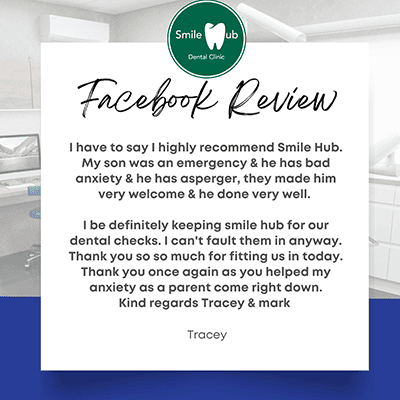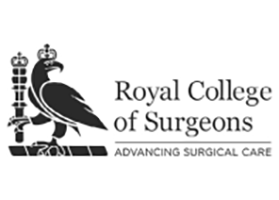

A tongue tie and/or lip tie, a group of abnormalities that can affect a child from birth and limit tongue movement, are possible. This may cause nursing difficulties as well as, in some cases, significant health issues include speech, airway, and digestive disorders. A frenectomy, a straightforward operation, can typically treat them.
What Happens During Tongue Tie Surgery?
A safe, quick-healing laser frenectomy is becoming more and more popular among parents. At Smile Hub Dental Clinic, we perform all frenectomies utilising a laser because we are aware of the laser's greater healing capabilities as opposed to using scissors or a scalpel.
Three different lasers are available at Smile Hub Dental Clinic:
Biolase created the EpicTM X Laser. It is well acknowledged that using a diode laser to cure tongue and lip ties is the best approach. Erbium lasers like the Waterlase are used to treat revisions after patients receive other treatments that didn't work. The CO2 laser is regarded as the gold standard in oral surgery because it consistently produces reliable outcomes without reattachment. The use of this laser has several advantages: Efficiency - no stitches are required, and the operation takes less than 30 minutes. Because a laser uses light energy to operate, there is relatively little pain. There is almost minimal bleeding, and some infants and young children fall asleep while it is being done. The risk of infection is low to non-existent because the laser sterilises upon contact. Healing happens more quickly and without problems. The end outcome is tissue that is healthy, well-healed, and less likely to reconnect. Since frenectomy is a painless surgery when carried out with a laser, we at Smile Hub Dental Clinic may just employ topical anaesthesia throughout the procedure.
Procedure for a frenectomy at Smile Hub Dental Clinic
Please get in touch with us to arrange an appointment at our clinic after receiving a recommendation letter from your GP, paediatrician, breastfeeding specialist, or a speech therapist. Initial Consultation. This session will last about 20 minutes. Here, your child will undergo a thorough evaluation for tongue or lip tie, have their medical history reviewed, and talk about the next course of action. If your child is between the ages of 1 and 5, we must evaluate their cooperation and compliance in the dentist chair and, if necessary, schedule a laser frenectomy procedure for a different session. Our Tongue Tie Specialist will discuss other choices with you and fully explain the decision not to remove the tongue or lip tie if your kid does not require a frenectomy treatment. When it's feasible, we try to accommodate our patients by providing same-day services. It takes about 30 minutes to perform a laser frenectomy. Your child will have a follow-up appointment scheduled for 7-10 days later to evaluate the healing progress.
How do you tongue tie?
When the skin flap under a baby's tongue fuses with the tongue, tongue knot results. Before birth, in the majority of new-borns, this section of skin separates from the tongue's tip. Occasionally, a tongue-tie is discovered during a new-born baby's standard check-up, but it's not always obvious. It might not be noticeable until your infant has feeding issues. A baby's ability to latch properly and breastfeed successfully, the promotion of appropriate speech development, and the ability for a youngster to self-cleanse their mouth while feeding are all benefits of good tongue function. Aside from enabling them to enjoy enjoyable little experiences like eating ice cream, playing a wind instrument, and sticking out their tongue to capture snowflakes, it also promotes appropriate swallowing habits and permits healthy growth and development. Tongue Tie Q&A
What symptoms of a child's tongue tie are present?
When your infant sticks out their tongue, it may appear to have a heart-shaped or notched tip. They struggle to shove their tongue out. Your baby's tongue tip cannot extend past the edge of their lower lip or to the roof of their mouth. Their tongues are hard to move from side to side.
How does breastfeeding suffer from tongue tie?
Babies with tongue ties may experience problems like: difficulty latching on or maintaining contact with your breast Long periods of feeding followed by a brief rest before further feeding being uneasy and constantly appearing hungry Putting on weight more slowly than necessary Making a 'clicking' noise when feeding excessive bloating
How can bottle feeding get affected by tongue tie?
It is less crucial for the tip of the tongue to remain movable when a baby is drinking from a bottle since the central region of the tongue is used more frequently. The following symptoms could be present if the tongue tie is interfering with feeding: - excessive salivation - sluggish weight gain - feeding taking a while - excessive bloating If your infant has trouble breastfeeding or taking a bottle because of a tongue tie or lip tie, they may not exhibit all the symptoms listed. However, if your infant exhibits any of the aforementioned symptoms or you are worried that they might have a tongue or lip tie, you might want to talk to your paediatrician about it.
What about tongue tie in adults and older children?
Sometimes tongue knots can result in issues like speech impediments, dietary aversions, and trouble brushing teeth. Other issues include having a large space between the bottom two front teeth or having a V-shaped notch at the tongue's tip. If a three-year-old child has trouble eating an ice cream cone or if more than half of their speech is not understood by others outside the family, consult a speech and language therapist.
What may I anticipate following the frenectomy?
Since we would need a small quantity of anaesthetic to complete the surgery, latching might initially be difficult. Do not panic if latching is challenging at first; the numbness will go away approximately 30-45 minutes later. Tongue ties can range in severity and include what we refer to as a 'posterior tongue tie' which may take a few weeks of practise before you realise the frenectomy's benefits. To get the best outcomes and prevent reattachment, we advise following the post-treatment exercises exactly and consulting with an osteopath and lactation specialist. Does your child's lingual tongue tie or lip tie hurt them or interfere with their ability to swallow, speak, or eat? To schedule your appointment, fill out the form or give us a call. Facts worth remembering about tongue and lip ties Boys are more frequently affected with tongue-tie than girls are. There are other causes of breastfeeding difficulties besides tongue-tie. Tongue-tie can sometimes impede a child's speech articulation, or their capacity to make sounds and pronounce words, even if it does not always result in speech delay. As breastfeeding becomes increasingly widespread, tongue-tie diagnoses are rising.
Dental Services
Meet The Team
Our team at Smile Hub Dental Clinic provides superior children's dental care in Dublin. We have extensive experience working with children who have special educational needs and always speak to them in a language that they understand.























